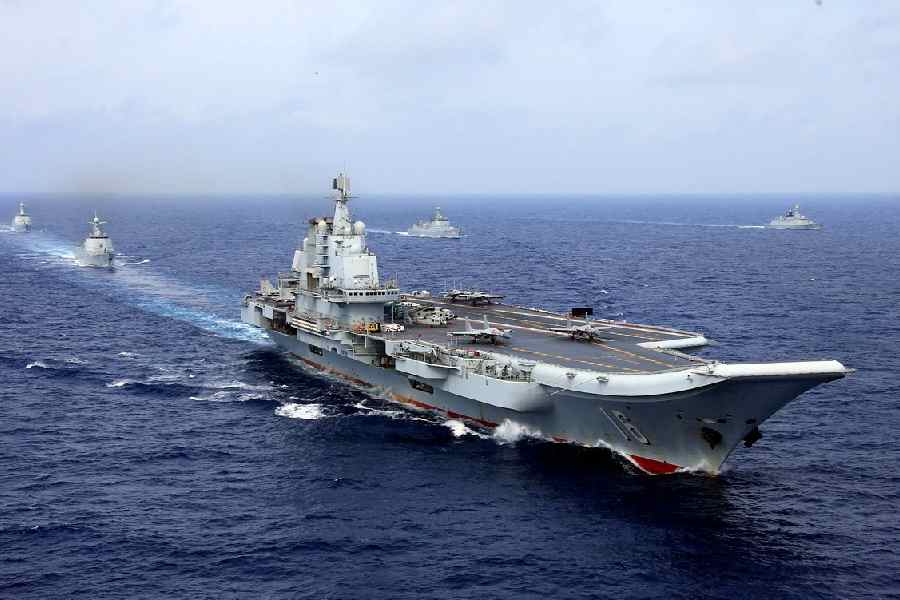The Chinese navy for the first time carried out exercises and tests of all three of its aircraft carriers recently to highlight that its carrier warship programme has entered a fast lane, official media reported on Tuesday.
Currently, China has two aircraft carriers in operation - the Liaoning, a refit of the Soviet-era ship commissioned on Sept 25, 2012 - and Shandong, an indigenously built 2nd aircraft carrier commissioned in 2019.
China's third aircraft carrier Fujian, which is larger than the two carriers with a displacement of 80,000, is currently undergoing trials.
Ahead of the 12th anniversary of the commissioning of China's first aircraft carrier, which falls on Wednesday, all three Chinese aircraft carriers reportedly carried out exercises or tests over the past week, state-run Global Times reported on Tuesday.
With this, China's aircraft carrier programme has entered a fast lane, it quoted observers as saying.
According to the official media, the Chinese navy plans to have four to five aircraft carriers making them the frontline force of its navy as China seeks to expand its global influence with deployments in the South China Sea, the Taiwan Strait and the Indian Ocean in future.
Fujian is the "first fully domestically developed and constructed" aircraft carrier with an electromagnetic aircraft launch system (EMALS) similar to that of the American aircraft carrier USS Gerald R. Ford, according to official media reports.
China's other two aircraft carriers are equipped with ski-jump take-off ramps while the Fujian features a flat-top flight deck.
Liaoning last week provoked protests from Japan by spotted sailing in waters near Diaoyu Dao islands in the western Pacific which are under the control of Japan, which calls the islands the Senkakus.
China periodically sends its coast guard ships to assert its claim over the islands.
Liaoning, which the Chinese navy uses for mostly training purposes, reportedly carried the new fighter jet J-35, an advanced version of the J-15 currently being used by the navy. The J-35 jet was designed to be used on Fujian, which has an EMALS landing system.
China's second aircraft carrier, the Shandong, recently hosted a certification test for night-time operation for a group of new fighter jet pilots during a combat exercise in the South China Sea, the state-run CCTV reported.
The move further enhanced the PLA Navy aviation force's round-the-clock, all-domain combat capabilities, as more fighter jet pilots are qualified to operate on aircraft carriers, according to the CCTV report.
Also, China's third aircraft carrier, the Fujian, was put to sea for the fourth time on September 3 to conduct a new round of sea trials, the daily report said.
As a general pattern, aircraft carriers spend one-third of their time under maintenance, one-third of their time in training, and one-third of their time in deployment.
Having three or more carriers would mean always having at least one carrier group ready for a mission, the Global Times quoted an anonymous Chinese expert.
China is making steady but fast progress in its aircraft carrier programme by building more carriers with higher capabilities, developing more types of advanced aircraft, training more pilots and conducting more far seas drills, the report said.
Except for the headline, this story has not been edited by The Telegraph Online staff and has been published from a syndicated feed.










